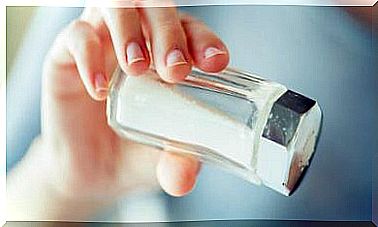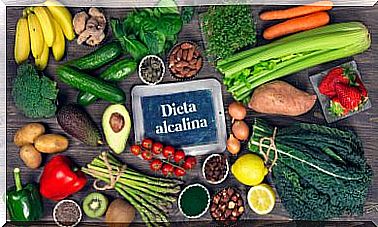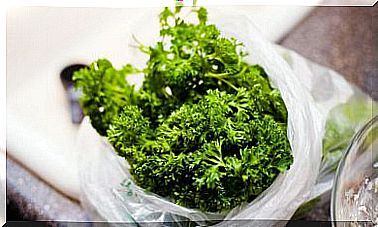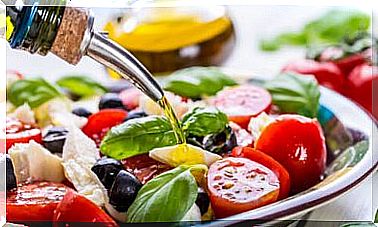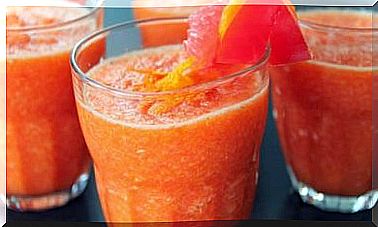Tips To Reduce Gastric Reflux
Gastroesophageal reflux is an ailment that we all experience at some point. Find out more about this disease and some tips to improve its symptoms.
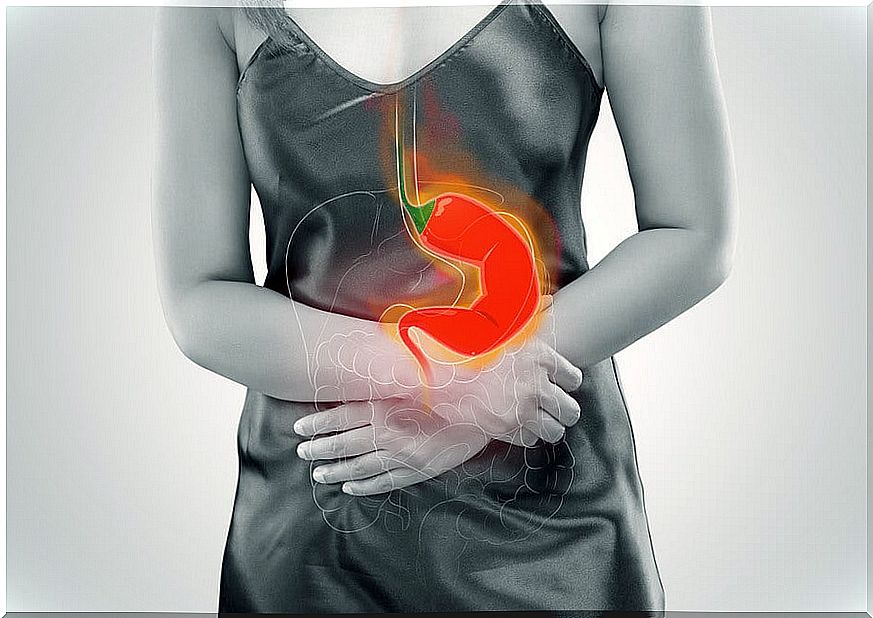
Gastric reflux occurs when stomach acid returns to the tube that connects the mouth to the stomach (esophagus), causing irritation to the lining of the esophagus.
Many people suffer from this condition which presents as mild acid reflux, and occurs at least twice a week, or moderate to severe acid reflux, and occurs at least once a week. Does it happen to you too?
Here we will show you important information about reflux and some tips to reduce its symptoms.
What is there to know about gastric reflux?
Acid reflux, also known as gastroesophageal reflux , is a common disease of the digestive tract that almost everyone has experienced at one time or another.
According to a Mayo Clinic publication, some common signs and symptoms of the disease include the following:
- Burning sensation in the chest and stomach, usually after eating.
- Chest pain.
- Difficulty to swallow.
- Regurgitation of sour food or liquids.
- Sensation of having a lump in the throat.

Stomach acids
The stomach has very powerful acids that break down food during digestion and, when this process does not work properly, there is an esophageal burning sensation or burning behind the breastbone.
The origin of this discomfort, according to the aforementioned publication, is that, when swallowing, a circular band of muscle that surrounds the lower part of the esophagus (lower esophageal sphincter) relaxes to allow food and liquids to descend into the stomach, and then returns to close.
For its part, the sphincter is like a barrier or lid that opens and closes every time food passes and is up to 7 centimeters long. Its main job is to control what goes into the stomach, as well as prevent what has already gone through there from returning in the opposite direction.
If the sphincter weakens or relaxes abnormally, stomach acid can move up into the esophagus and this constant flow of acid irritates the lining of the esophagus, causing inflammation. Since it is a muscle, it can vary in its strength or ability to close completely.
Some of the causes of gastric reflux are as follows:
- The condiments or ingredients that the food contains.
- Go to sleep right after dinner.
- Pressure on the stomach due to wearing very tight clothing.
- Physical activity.
- Smoking and other bad habits of life.
Diseases caused by reflux
Since we are born we have gastric reflux, so do not be alarmed if it happens from time to time. However, if symptoms persist, chronic inflammation of the esophagus can lead to several complications.
According to a study published in The National Center for Biotechnology Information , the most frequent are:
- Esophagitis Lesions in the lower esophagus caused by stomach acid cause scar tissue to form. Scar tissue narrows the path that food travels, causing difficulty swallowing.
- Esophageal ulcer Stomach acid can wear down the esophagus tissue and cause an open sore to form. An esophageal ulcer can bleed, cause pain, and make swallowing difficult.
- Barrett’s esophagus. Acid damage can cause damage to the tissue that lines the lower esophagus.
How to avoid gastric reflux?

If you have frequent heartburn or reflux, or a combination of the two, it ‘s important to monitor your symptoms to avoid additional health problems.
According to a study by Therapeutic Advances in Chronic Disease , the following lifestyle modifications can help reduce the annoying symptoms of reflux:
- Eat small portions of food more often and take time to chew.
- Avoid overeating.
- Get physical activity if you are overweight.
- Increase your fiber intake.
- Include a good amount of fruits and vegetables in your diet.
- Try to eat 2-3 hours before bed.
- Avoid foods high in fat and sugar, alcohol, caffeine, and chocolate.
- Maintain a healthy weight.
- Stop smoking.
- Elevate the head of the bed.
In short: good habits help prevent and relieve reflux

Gastric reflux occurs when stomach contents, including undigested food, bile, and acids, back up into the esophagus .
Some of the most common symptoms may be: a burning sensation in the stomach, chest pain, difficulty swallowing, and regurgitation of sour food or liquids. Although it is a very common problem that occurs in most people, untreated gastric reflux can lead to more severe health problems such as esophagitis, ulcers, and Barrett’s esophagus.
Various lifestyle changes can reduce the symptoms of the disease. However, it is important to have an assessment from your doctor if these persist or worsen.
